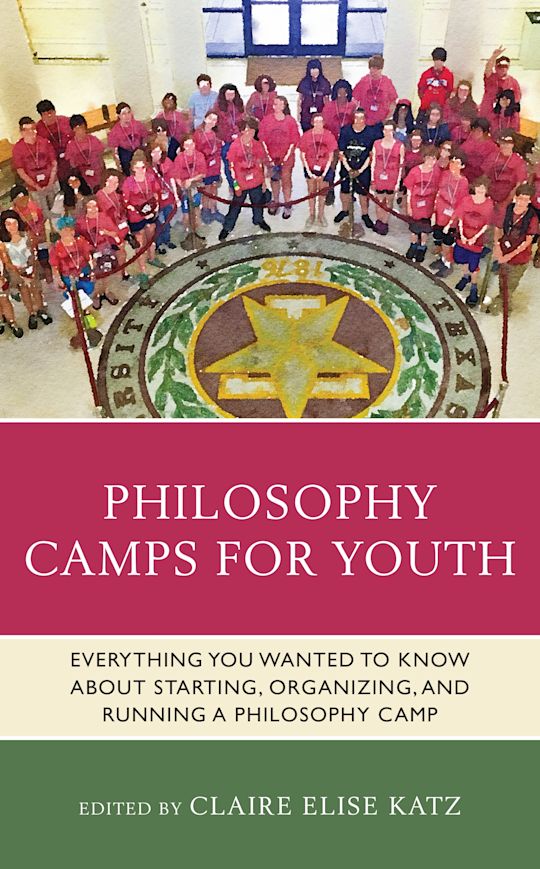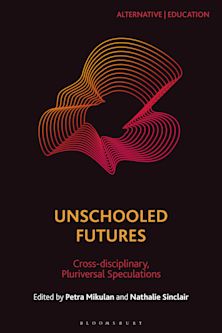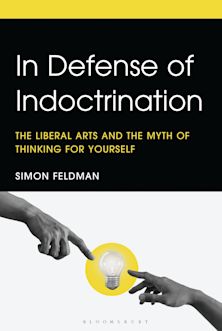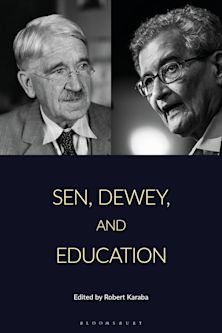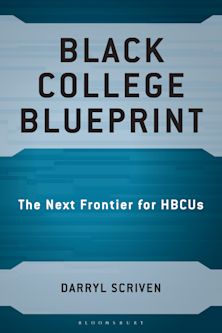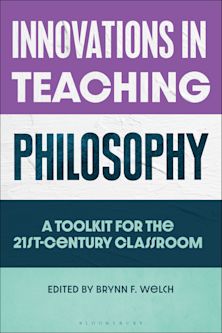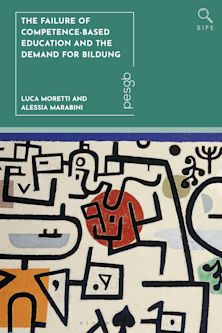Philosophy Camps for Youth
Everything You Wanted to Know about Starting, Organizing, and Running a Philosophy Camp
Philosophy Camps for Youth
Everything You Wanted to Know about Starting, Organizing, and Running a Philosophy Camp
Description
Philosophy Camps for Youth joins its companion, Growing Up with Philosophy Camp, and contributes to the growing body of literature on pre-college philosophy. Providing sound advice, descriptive activities, and precise details for starting, organizing, and running a philosophy camp for pre-K-12 students, Philosophy Camps for Youth is an indispensable guide for anyone interested in hosting their own philosophy camp. The description of diverse camp models—from half day to full day, from one week to multiple weeks, from day-camp to residential—allows readers to build and foster a camp that fits their instructional needs and institutional support. The inclusion of specific camp activities and contributions by campers discussing the activities and themes that had the biggest impact on them, those interested in starting a philosophy camp get valuable guidance from those who have run successful philosophy camps.
Table of Contents
Introduction
Claire Katz
Part I. How to start, organize, and run a philosophy camp
Observations on the Aggie School of Athens: Running a Philosophy Summer Camp in South Central Texas
Claire Katz
Developing a Philosophy Summer Camp at the University of Kentucky
Caroline Buchanan, PhD, James William Lincoln, MA & MS, Suraj Chaudhary, MA, Clay Graham, MA, Andrew Van’t Land, MA, Lauren Dickey, MA, Colin Smith, MA
The Iowa Lyceum
Landon D. C. Elkind (University of Iowa) and Gregory Stoutenburg (York College of Pennsylvania)
The Philosophy and Critical Thinking (PACT) Summer Camp at Ohio State
James Fritz, Lavender McKittrick-Sweitzer, Justin D’Arms, Julia Jorati
Philosophy Summer Camp: A Philosophical World of Tangible Conversations
Kimberly Arriaga-Gonzalez, Cristina Cammarano, & Jackson Malkus
Corrupt the Youth
Alex Hargroder and Briana Toole
From the Ground Up: Developing a High School Philosophy Camp
Charlie Kurth and Adam Waggoner
Part II. Sample Activities and Lesson Plans
Lesson Plan: Justice and Different Types of Evidence
Jamie Fritz
Lesson Plan: How Should Scientists Choose the Best Theory?
Roger Sansom
Playing the Hobbes Game at Philosophy Camp
Robert Garcia
Rational Choice Theory and the Prisoner’s Dilemma
Cora Drozd
Philosophy, Magic, and Curiosity: Reflections on P4C Texas’s 2019 Summer Camp
Michael Portal
The If/Then Exercise and The Case for Incorporating P4C into Pre-K Camps and Programs
Charles Carlson
Teaching Freire: Philosophy for Children Lesson
Ana Olivares-McFadden
Part III. Camper/Parent Observations
Aggie School of Athens at Texas A&M University
Evelyn Conway
Calla Duffield
Ellie Hague
Mia Paulk
E. Grace Sorensen
Andrew Sorescu, Alina Sorescu, and Sorin Sorescu
Surya Sunkari
Iowa
Nicholas C. Peters
Maeve Ward
Christopher C. Peters
MOSHI Winter Camp
Su-Yin Bouchot
PACT Ohio State
Ezra Johnson
Larada McCreary
Shefali Sinha
Kevin and Melisssa Shoultz
Salisbury
Sophia Smith
Ryan Cadwaller
Appendix: Pre-college philosophy works
Meta-Analysis of the Effectiveness of Philosophy for Children Program on Students’ Cognitive Outcomes (excerpt)
Sijin Yan, Lynne Masel Walters, Zhuoying Wang, Dr. Chia-Chiang Wang
Contributors
Product details
| Published | 05 Mar 2021 |
|---|---|
| Format | Ebook (PDF) |
| Edition | 1st |
| Extent | 216 |
| ISBN | 9798765176634 |
| Imprint | Rowman & Littlefield |
| Illustrations | 21 b/w illustrations;6 tables |
| Series | Big Ideas for Young Thinkers |
| Publisher | Bloomsbury Publishing |
Reviews

ONLINE RESOURCES
Bloomsbury Collections
This book is available on Bloomsbury Collections where your library has access.









